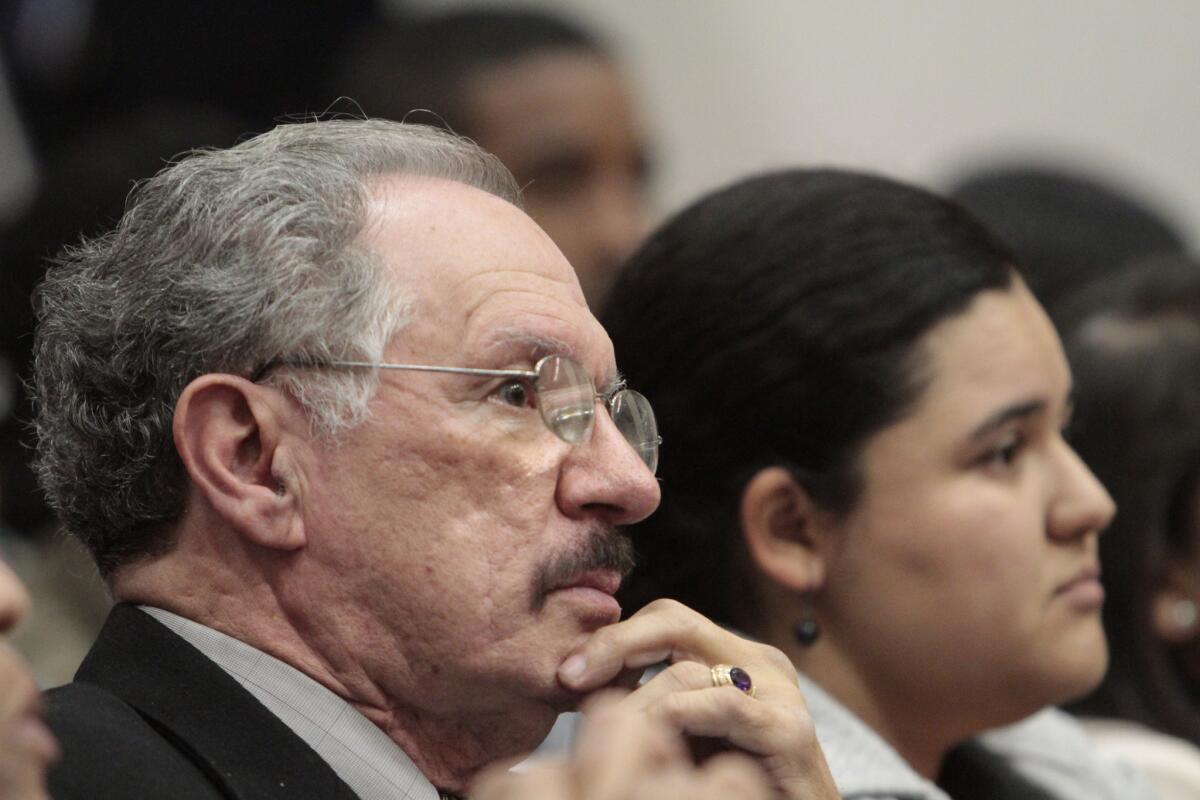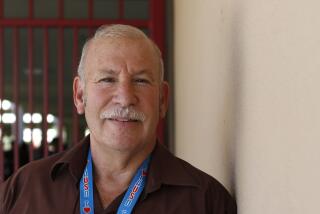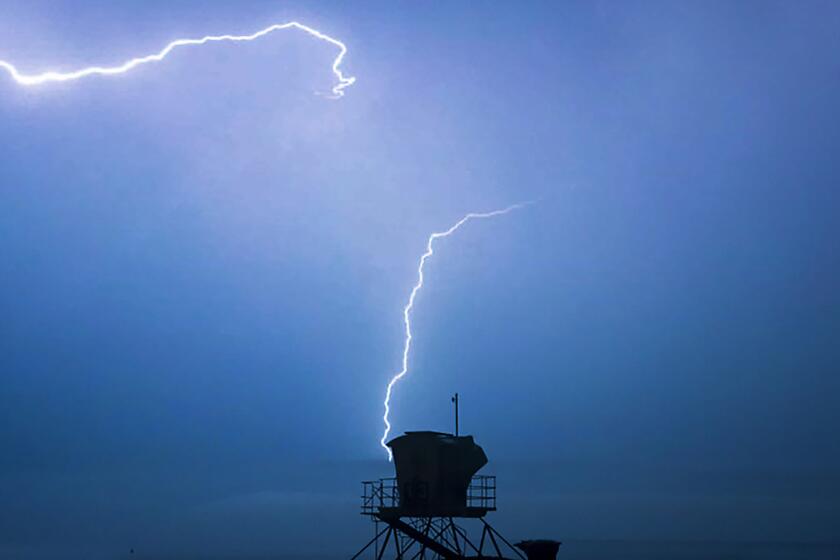A proposed STEM school causes the first divide among the new group of school board members

Should the Los Angeles Unified School District oversee the education of the city’s disadvantaged students? Or are those students better off when others step in to do the job?
With the growth of charter schools backed by some of the city’s most prominent people, such questions have long been a hot topic.
Last week they found a new focus, in a debate over a proposed science and math school sponsored and overseen by the state.
Discussion of whether or not to back it caused the first major divide on the newly configured L.A. Board of Education, at its first public meeting of substance. The debate also suggested that the politics of a divisive May school board election will continue to play out in the nation’s second-largest school system.
A bill to create a new school focused on science, technology, engineering and math (STEM) currently is before the state Legislature. The sponsor of the legislation, Assembly Bill 1217, is Raul Bocanegra (D-San Fernando).
Supporters say the state-sponsored school model has proven successful elsewhere, with 15 such schools in 14 other states. They envision a new state-of-the-art campus in downtown L.A. and have collected endorsements from Cal Tech, UCLA, Massachusetts Institute of Technology, the L.A. Area Chamber of Commerce, the United Negro College Fund and four of five L.A. County supervisors.
A notable backer is local philanthropist and major charter-school funder Eli Broad, who has pledged to help pay for the project.
“The school will particularly seek to serve low-income students and other high-need students,” Broad said in a statement to The Times.
Critics say the new school, as described in the bill, looks very much like an independent charter school. They are concerned that the campus proposal amounts to an end run around the local school district and another effort to lessen local school boards’ authority to approve and monitor public schools within their boundaries.
At last week’s Board of Education meeting, board member George McKenna put forward a resolution to let legislators know that L.A. Unified thinks the proposed school is a bad idea. The board vigorously debated the resolution for more than an hour.
In the end, three board members wanted to state the board’s opposition to the idea. All are retired educators who once were L.A. school principals.
The four members against the resolution form the board’s new, first-of-its-kind majority backed by charter supporters. Three of the four — incumbent Monica Garcia and newcomers Nick Melvoin and Kelly Gonez — got pivotal financial support from charter backers in the May election. The fourth, board president Ref Rodriguez, received similar backing two years ago.
The resolution to oppose the state STEM school failed by a 4-3 tally.
Charters are independently managed, with greater freedoms than most traditional public schools. In L.A., most are nonprofit and nonunion, which is how the proposed school would be set up. Charter proponents often argue that union contracts and school district bureaucracy get in the way of improving students’ education.
L.A. Unified has more charters than any other school system, serving about 16% of district students. Some charter advocates have long wanted to spur even faster charter growth by making it easier for other entities to approve them.
Like a charter school, the proposed STEM campus would operate independently under an appointed board of directors and would be up for renewal in five years. Unlike the typical charter, it would not be authorized and supervised by the local school board.
McKenna saw that lack of local oversight as a fatal flaw, and he said L.A. Unified already has scores of math and science programs, including many excellent ones, that could benefit from philanthropists’ help. Board members, he added, have a responsibility to oppose a school that, like charters, would drain students, state funding and other resources away from district schools that need them. District schools already are underenrolled, and allowing this project and others like it, he said, would speed up the exodus of students.
The board majority did not share McKenna’s concern.
Garcia, the longest-serving board member, said there are not enough effective district-run schools. Melvoin said parents deserve more choice and L.A. schools should compete for students by offering stronger programs. Gonez tried unsuccessfully to craft a compromise before voting against McKenna’s resolution.
Rodriguez cast the deciding vote. After mostly remaining silent, he said he objected to wording in sections of the resolution. He did not suggest alternative language or express a view about the proposed school.
Speakers before the board split along a fault line familiar from the school board race.
Although the California Charter Schools Assn. said it has no position because the school isn’t a charter, it strongly urged the board to reject McKenna’s resolution. (Broad gave $1.9 million to CCSA’s political wing in April and May, which helped fuel L.A.’s most expensive board elections ever.)
United Teachers Los Angeles — second to charter backers in school board election spending (and on the losing side) — argued against the school, which also is opposed by the California Teachers Assn. and the California School Boards Assn.
In a rare stand on a politically divisive issue, Supt. Michelle King said she opposed the bill. King said she’d been unable to get the bill’s author to explain how this school really was different from a charter and why it should not have similar local oversight. She also said she didn’t see a need.
“I’m uncomfortable with the narrative that something else has to be set up because we are not doing something in LAUSD,” she said.
More to Read
Start your day right
Sign up for Essential California for news, features and recommendations from the L.A. Times and beyond in your inbox six days a week.
You may occasionally receive promotional content from the Los Angeles Times.







